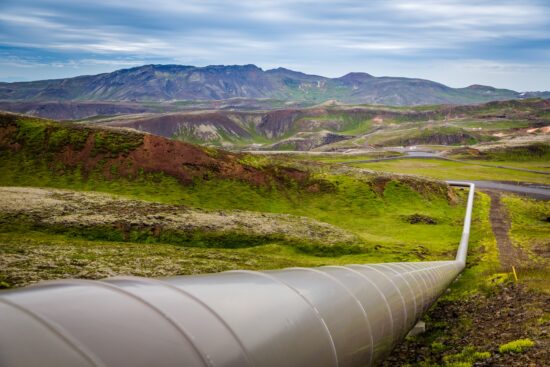New intelligence reveals the possible involvement of a pro-Ukrainian group in the attack on Nord Stream pipelines that caused significant damage and remains unsolved.
The attack on the Nord Stream pipelines last year may have been carried out by a pro-Ukrainian group, according to new intelligence that U.S. officials have reviewed. However, it has taken months for investigators on both sides of the Atlantic to find a significant lead about who carried out the attack.
Unsolved Sabotage of Nord Stream Pipelines Sparks Speculation of Ukrainian Involvement
The Nord Stream pipelines transport natural gas from Russia to Western Europe, and the attack stoked public rumor about who was to blame from Moscow to Kyiv and London to Washington. Deep-sea explosions in September tore the pipelines apart in what U.S. officials initially referred to as an act of sabotage.
Some officials believe Ukraine and its allies have the most plausible reason to attack the pipelines. They have been against the project for years, claiming it threatens national security because it would make it easier for Russia to sell gas to Europe. However, officials from the Ukrainian government and military intelligence have denied any involvement in the attack and claim to be unaware of its perpetrator.
According to U.S. officials, there is no proof that Ukrainian president Volodymyr Zelensky or any of his top lieutenants were involved in the operation or that the criminals were following the orders of any Ukrainian government representatives. However, the analysis of recently gathered intelligence makes a case that they opposed Russian President Vladimir V. Putin without naming the individuals in the group or identifying who oversaw or funded the operation.
U.S. officials chose not to discuss the intelligence’s nature, how it was gathered, or the specifics of how strong the evidence it contains. The possibility that the operation was carried out covertly by force with ties to the Ukrainian government or its security services is left open by their claim that there are no conclusive findings.
New Intelligence Suggests Pro-Ukrainian Group May Have Sabotaged Nord Stream Pipelines
The Nord Stream pipelines have been a contentious topic for years, with Russia supporting their construction while Ukraine and its allies oppose it. The pipelines were completed in 2021 over objections from officials in the United States, Britain, Poland, and Ukraine, among others, who warned that it would increase German reliance on Russian gas.
The latest intelligence has given American spy agencies, and their European allies more hope that they can uncover additional details that will help them identify the perpetrators with certainty. However, officials claim that there are still significant gaps in the knowledge of U.S. spy agencies and their European allies regarding what took place.
The coalition supporting Ukraine will be significantly impacted geopolitically by the attack on the Nord Stream pipelines. Any mention of Ukrainian involvement, whether direct or indirect, can sour the delicate balance between Germany and Ukraine while also alienating the German public, which has endured high energy prices out of solidarity.
The new intelligence that U.S. officials have reviewed suggests that the attack on the Nord Stream pipelines last year may have been carried out by a pro-Ukrainian group. However, officials claim that there are still a lot of unknowns regarding the perpetrators and their associations, which leaves open the possibility that the operation was carried out clandestinely by force with ties to the Ukrainian government or its security services.
What are the Nord Stream pipelines, and why are they controversial?
The Nord Stream pipelines are a series of pipelines that transport natural gas from Russia to Western Europe. They have been controversial because they increase Germany’s reliance on Russian gas, which some officials in the United States, Britain, Poland, and Ukraine, among others, have warned could pose a threat to national security.
What was the attack on the Nord Stream pipelines, and who is suspected to be responsible for it?
In September of last year, the Nord Stream pipelines were damaged by deep-sea explosions in what U.S. officials initially referred to as an act of sabotage. New intelligence that U.S. officials have reviewed suggests that the attack may have been carried out by a pro-Ukrainian group, but there is no conclusive evidence yet on who was responsible.
Why are Ukrainian officials suspected of being involved in the attack?
Ukrainian officials are suspected of being involved in the attack because they and their allies have been against the Nord Stream pipelines for years, claiming it threatens national security. However, officials from the Ukrainian government and military intelligence have denied any involvement in the attack and claim to be unaware of its perpetrator.
What impact could the potential involvement of a pro-Ukrainian group have on the coalition supporting Ukraine?
The potential involvement of a pro-Ukrainian group in the attack on the Nord Stream pipelines could significantly impact the coalition supporting Ukraine. Any mention of Ukrainian involvement, whether direct or indirect, could sour the delicate balance between Germany and Ukraine while also alienating the German public, which has endured high energy prices out of solidarity.
What is the latest intelligence on the attack, and how could it help identify the perpetrators?
The latest intelligence on the attack suggests that it may have been carried out by a pro-Ukrainian group, but there are still significant gaps in knowledge regarding what took place. American spy agencies and their European allies hope that this intelligence will help them uncover additional details that will help them identify the perpetrators with certainty.
From Controversy to Sabotage: A Look at the History of the Nord Stream Pipelines
A series of bombings on the Nord Stream 1 and Nord Stream 2 natural gas pipelines occurred on September 26, 2022. These pipelines, primarily owned by the Russian gas company Gazprom, were built to transport natural gas from Russia to Germany through the Baltic Sea. All three affected pipes were rendered inoperable due to underwater gas leaks caused by the bombings.
The perpetrators’ names and motivations remain a mystery. The attacks took place one day before the Baltic Pipe, which brings gas from the North Sea rather than from Russia as the Nord Stream pipelines do, was opened by Poland and Norway. Although they are in international waters, the leaks are inside Denmark’s and Sweden’s economic zones.
Given that Russia provides about 45% of the natural gas that European Union member states import, the bombings significantly impact the European energy sector. The United States has long opposed the Nord Stream pipelines. Donald Trump, a former president, warned that Nord Stream 2 could make Europe a “hostage of Russia” and imposed sanctions on any business helping Russia finish the pipeline. In 2021, the Biden administration lifted the sanctions after President-elect Joe Biden spoke out against the construction of the new channel. However, President Biden said in February 2022 that the US would stop Nord Stream if Russia invaded Ukraine.
The pipelines sustained unheard-of damage due to the bombings, and Nord Stream AG claims that it is impossible to estimate the cost of repairs. Furthermore, due to seawater-induced corrosion, it is unlikely that the pipelines will ever be operational once more. Possible methods for repairing the pipelines include full-scale replacement of pipe segments and clamping of damaged sections, which could take several months.
Vladimir Putin, the president of Russia, has referred to the attacks on the Nord Stream pipelines as an act of international terrorism. The bombings could irreparably harm relations between Russia and Germany, one of the biggest consumers of Russian gas, which has significant geopolitical ramifications. The future course of the situation and its impact on the energy industry in Europe and beyond are still uncertain.





